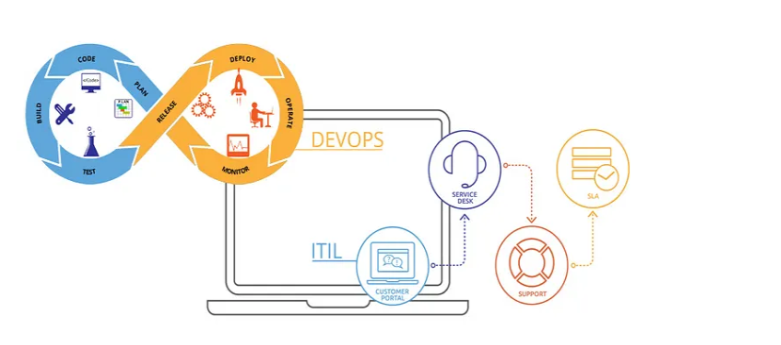How ITIL Helps in DevOps Observability
 DurgaSaran
DurgaSaran
ITIL (Information Technology Infrastructure Library) and DevOps can complement each other when it comes to observability in IT systems. Observability refers to the ability to understand and monitor the internal state of a system by examining its outputs. Here's how ITIL can contribute to enhancing observability in a DevOps environment:
Service Management and Monitoring:
ITIL Perspective: ITIL emphasizes the importance of service management, including monitoring and managing services to meet business needs.
Observability Integration: By aligning ITIL service management practices with DevOps, organizations can establish well-defined services with clear monitoring requirements. This ensures that the right metrics and logs are collected to support observability.
Incident Management:
ITIL Perspective: Incident Management is a core ITIL process that focuses on restoring services to normal operation as quickly as possible.
Observability Integration: When incidents occur in a DevOps environment, ITIL's Incident Management practices can be integrated to provide a structured approach to identifying, diagnosing, and resolving issues. Observability tools play a crucial role in providing real-time insights during incident response.
Change Management for Observability Tools:
ITIL Perspective: ITIL Change Management ensures that changes are planned, tested, and implemented in a controlled manner to minimize disruptions.
Observability Integration: When implementing or updating observability tools in a DevOps environment, ITIL's Change Management practices can be utilized to manage these changes effectively. This helps in avoiding unintended consequences and ensuring that observability capabilities are consistently applied across the IT landscape.
Configuration Management:
ITIL Perspective: Configuration Management in ITIL involves maintaining accurate and up-to-date information about configuration items (CIs) in the IT environment.
Observability Integration: Accurate configuration data is crucial for effective observability. DevOps teams can leverage ITIL's Configuration Management practices to ensure that observability tools are correctly configured and aligned with the current state of the IT infrastructure.
Collaboration and Documentation:
ITIL Perspective: ITIL emphasizes collaboration and documentation to ensure that information is shared and readily available.
Observability Integration: DevOps teams can benefit from ITIL's focus on collaboration and documentation by ensuring that observability-related information, including metrics, logs, and incident response procedures, is well-documented and shared among team members. This facilitates a more comprehensive understanding of the system's behavior.
In summary, ITIL can enhance DevOps observability by providing structured processes for service management, incident response, change management, and configuration management, and encouraging collaboration and documentation. Integrating ITIL practices with DevOps observability efforts helps organizations build a robust and well-managed IT environment.
Subscribe to my newsletter
Read articles from DurgaSaran directly inside your inbox. Subscribe to the newsletter, and don't miss out.
Written by

DurgaSaran
DurgaSaran
Enthusiastic Technical Consultant specializing in DevOps, Data Engineering, and Security. Adept at designing and implementing Observability solutions for real-time insights for Enterprises. Proven track record in optimizing cloud infrastructure for enhanced performance and security.